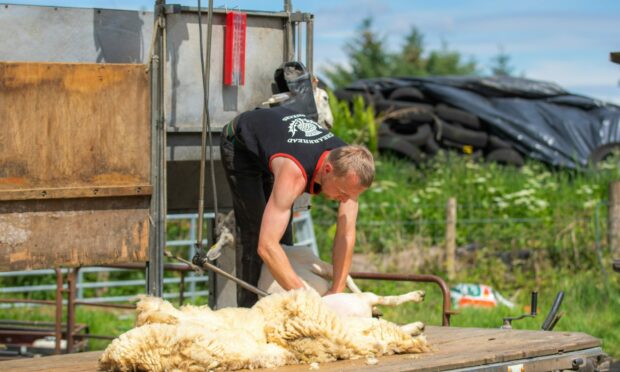Prices paid to British Wool members for last year’s wool clip will be down on the previous year as the farmers’ co-operative’s CEO said the impact of high energy prices has been ”enormous.”
It has been confirmed that a total of £6.6 million will be paid to members this year, with personalised letters due to arrive through letter boxes anytime from now to confirm total values of producers’ 2022 wool.
The core grades will be achieving 30p per kg and the Blackface wool will receive 20p per kg, with Welsh Mountain at 10p per kg and Swaledale at 8p per kg.
Fleeces from organic flocks will attract a premium of 70p per kg for core types and 20p per kg for the Welsh Mountain type.
Andrew Hogley CEO of British Wool said he understands that prices will be disappointing for members, particularly on the back of falling lamb prices and other difficulties in the wider industry.
“We are frustrated too,” said Mr Hogley.
“Global prices have been under pressure in recent months and this, alongside the cost inflation experienced by the wider industry, had created significant difficulties in the marketplace.
“As a farmers’ co-operative, the returns we offer our members are determined by the value we can achieve for the wool we sell on their behalf and the costs of bringing that wool to market.”
Mr Hogley said there had been positive signs of recovery in the wool market after the devastating impact of the Covid pandemic, however the war in Ukraine and subsequent spike in energy prices reversed much of those improvements.
“High energy costs and consumer confidence had led to a very challenging environment for all raw material suppliers including wool,” he added.
“Commercial scouring tariffs have increased by 30% over the past 12 months.
“Increased haulage rates and diesel prices had also been a significant challenge to the business.”
Despite these difficulties, British Wool has still been able to sell the wool achieving prices comparable to those in New Zealand.
Mr Hogley said the organisation was optimistic about the future and believes there is much to be positive about.
“Our focus on the environmental and sustainability credentials of British wool is gaining traction,” he said.
“Over the past year the number of brands with verified British wool product ranges has increased to more than 100.
“Increasingly we are seeing manufacturers willing to pay a premium for traceable British wool and we have invested in our systems that give full traceability back to the farm.
“We encourage sheep farmers to continue supporting us as we continue to navigate these difficult times. We truly believe that with continued effort, determination, and innovation we can build a positive future for wool, but we all need to work together.”
He added that exploring new uses and markets for wool was ongoing.

